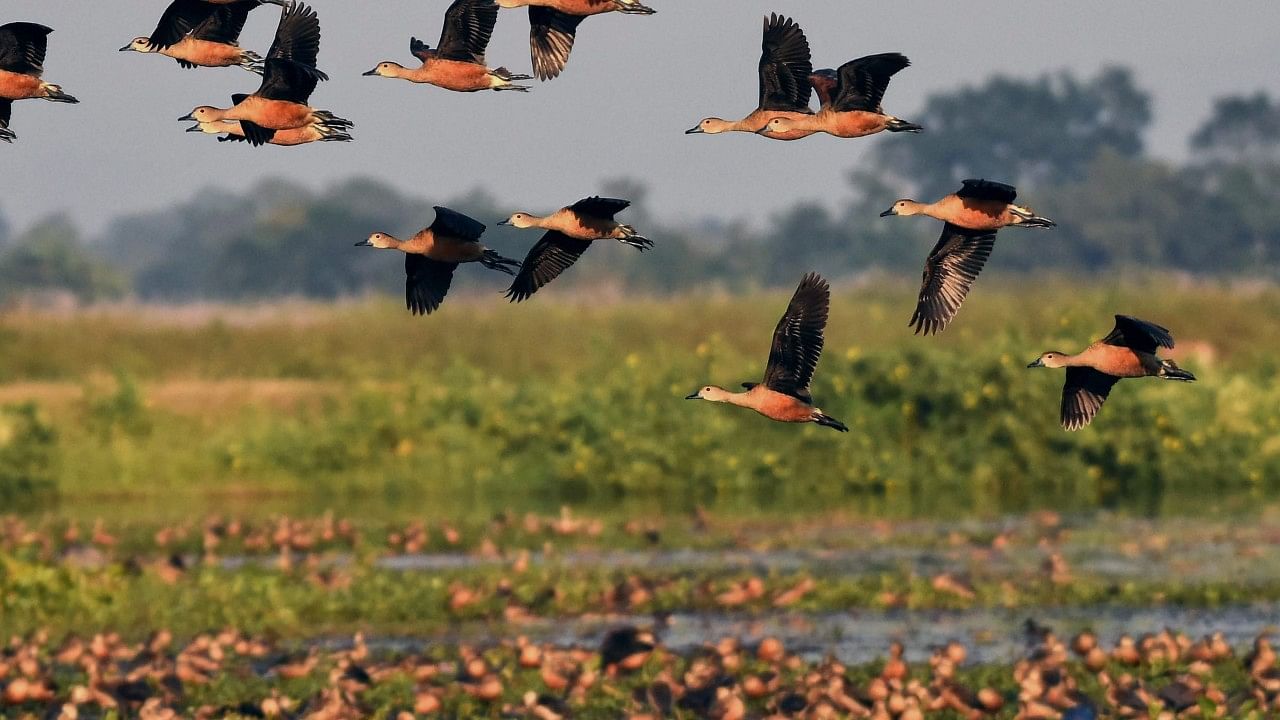
Representative Image of a wetland.
Credit: PTI Photo
Mumbai: Several ornithologically-important wetlands are threatened by increase in human population, socio-economic activities, human-induced adverse natural phenomenon putting waterbirds at risk, according to Kishor Rithe, the Director of Bombay Natural History Society (BNHS).
Wetlands are ecosystem of great economic and recreation value with diverse flora and fauna - and have scientific impact on livelihoods, health and security of local communities and provide ecosystem services like food, water for domestic and irrigation, medicines, construction material, nutrient cycling, water purification, shoreline stability, climate regulation, ground water recharge and water control.
“Migratory birds connect continents and countries and serve as excellent indicators of the environment at both global and local scales. Of the 1,200 bird species found in India, around 22 per cent are totally dependent on wetlands. Some wetlands are known for their bird species, abundance and diversity,” said Rithe, a naturalist and conservationist, in a note in Hornbill, the BNHS magazine.
The BNHS is closely working with the Ministry of Environment, Forest and Climate Change on the Central Asian Flyway (CAF) programme.
Rithe said initiatives like Mission LiFE and Amrit Dharohar would go a long way in conservation of wetlands and Ramsar sites.
“Prime Minister Narendra Modi is committed to saving wetlands, the Supreme Court has given clear directives, the MoEF&CC has stated that it is a national priority. Everything is in place,” he said, adding that what is now required is BNHS members and Indian Bird Conservation Network (IBCN) partners along with state governments identify and address the issues troubling the wetlands like poaching, invasive species, pollution, encroachments, reclamation and recreational use to secure the habitats and enhance population of waterbirds.
Rithe added, "The major traditional wintering grounds for waterbirds of CAF are situated in India. During peak migration periods, hundreds and thousands of birds descend upon the wetlands and India, seeking refuge and food. Wetlands are dynamic, interconnected habitats influenced by natural processes and social practices. Hence, protecting these migratory birds and implementing science-based habitat management is crucial, at the same time ensuring sustainable benefits for local communities."